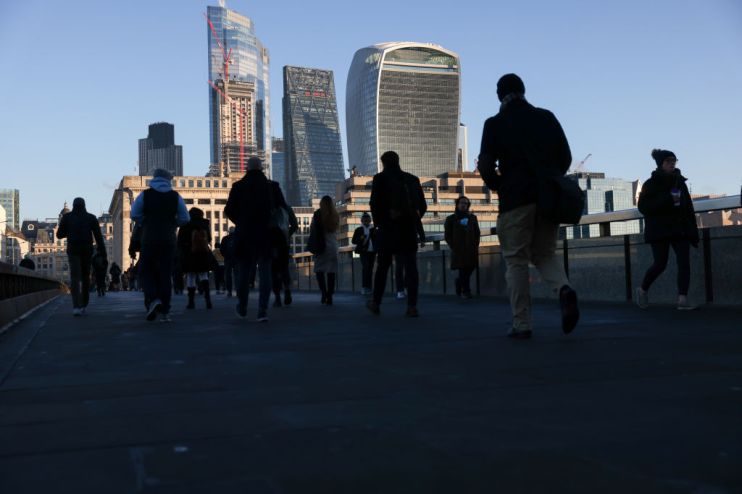Fewer unemployed people than job vacancies: Jobless rate lowest since 1974 with 121,000 more Brits on payrolls

The number of UK workers on payrolls rose by 121,000 between March and April to 29.5m, the Office for National Statistics said this morning.
It means Britain’s jobless rate has fallen to its lowest level for over 47 years but workers have seen their pay fall further behind rocketing inflation, according to official figures.
The rate of unemployment dropped to 3.7 per cent in the three months to March – the lowest since October to December 1974.
For the first time ever, there were fewer unemployed people than job vacancies, although the fall in the rate was also down to a rise in the number of people dropping out of the jobs market, the figures showed.
Cost-of-living crisis
The ONS also laid bare the scale of the mounting cost-of-living crisis, revealing that regular pay excluding bonuses dropped by 2.9 per cent in March when taking Consumer Prices Index (CPI) inflation into account – the biggest fall since November 2011.
In the three months to February, real regular pay was 2 per cent lower, the steepest decline since 2013.
It comes in spite of another pick up – of 4.2 per cent – in regular average pay in the quarter.
Pay including bonuses jumped 7 per cent and was up 9.9 per cent in March as firms ramped up rewards for staff amid a booming jobs market.
The latest ONS labour market data also confirmed another rise in the number of UK workers on payrolls, up 121,000 between March and April to 29.5 million.
Darren Morgan, director of economic statistics at the Office for National Statistics (ONS), said: “While the economy was still growing in the first three months of 2022, there continued to be a mixed picture for the labour market.
“Total employment, while up on the quarter, remains below its pre-pandemic level,” he added. “Since the start of the pandemic, around half a million more people have completely disengaged from the labour market.”
“Jjob vacancies are still rising, reaching yet another record high.”
Darren Morgan of the ONS
“Indeed, with the latest fall in unemployment, to its lowest rate since 1974, there were actually fewer unemployed people than job vacancies for the first time since records began,” Morgan continued.
“Continued strong bonuses in some sectors such as construction and especially finance mean that total pay is continuing to grow faster than prices on average, but underlying regular earnings are now falling sharply in real terms.”
The director general of the CBI has said the Government needs to “slow down the economy, but make sure it doesn’t slow down permanently”, as the number of UK workers on payrolls rises.
Speaking to LBC, Tony Danker said the Chancellor needs to “step in now” to help those hardest hit by the cost of living.
He compared the need to slow down the economy to clutch control on a car and said the Chancellor and Government “need to slow down the economy, but make sure it doesn’t slow down permanently”.
He claimed that “people missing meals is unacceptable”, with many resorting to this measure because of the cost-of-living crisis.
The Office for National Statistics reported the number of UK workers on payrolls rose by 121,000 between March and April to 29.5 million, to which Mr Danker said that “people cannot hire for love and money”, and labour shortages and inflation were the two factors most affecting business at this time.